Wooden Spoons Can Last ForEVER if Cleaned the RIGHT Way!
While these kitchen essentials don't require special products, there is one thing to be aware of. Food researcher/writer, Lynn Andriani, explains how these throwbacks to another era can carry on for generations if treated properly.
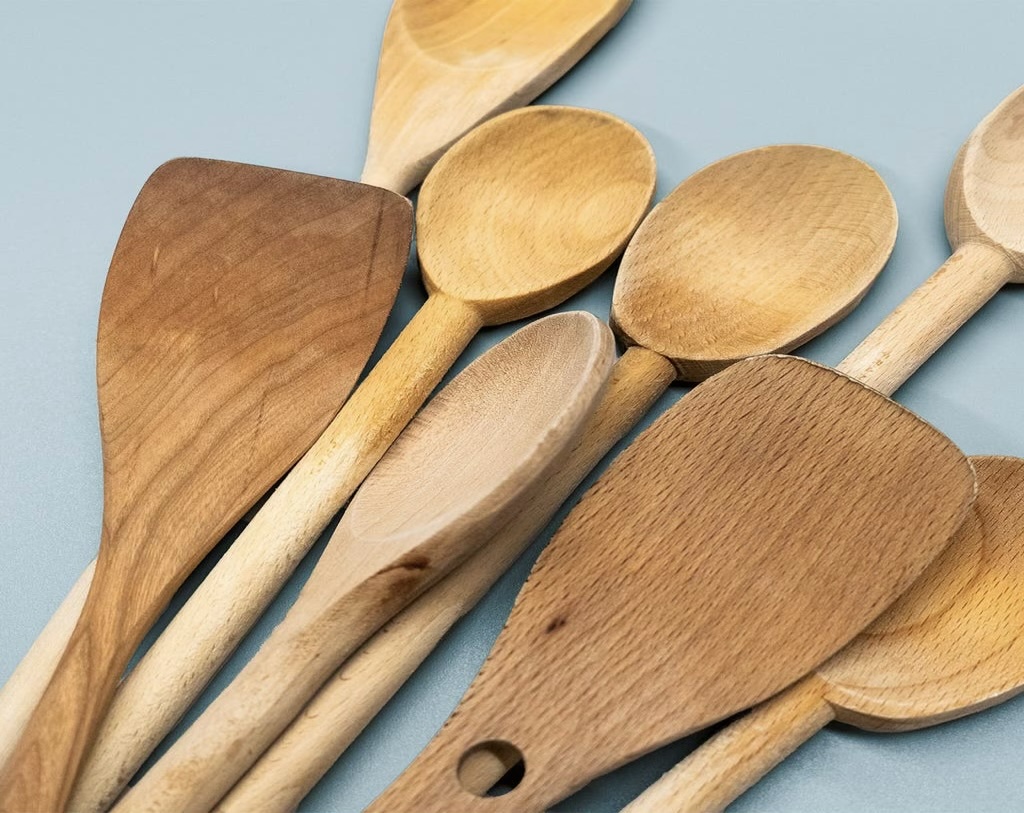
I have friends (and maybe you can make the same claim), that are using wooden utensils they’ve inherited from their grandmothers and great grandmothers. And each one says they’d never give ‘em up. They’re loved for their simplicity and dependability.
It's no wonder home cooks and professional chefs alike love these things. They're inexpensive, durable and versatile. Wooden spoons can mix batter, scrape burnt bits off a pan, and stir a sauce. But unlike metal spoons, they don't hold heat (so no worries about burning your hand!), nor do they chemically react with acidic foods, such as tomatoes. They are also gentle on non-stick pans, and—unlike plastic utensils—they won't melt.
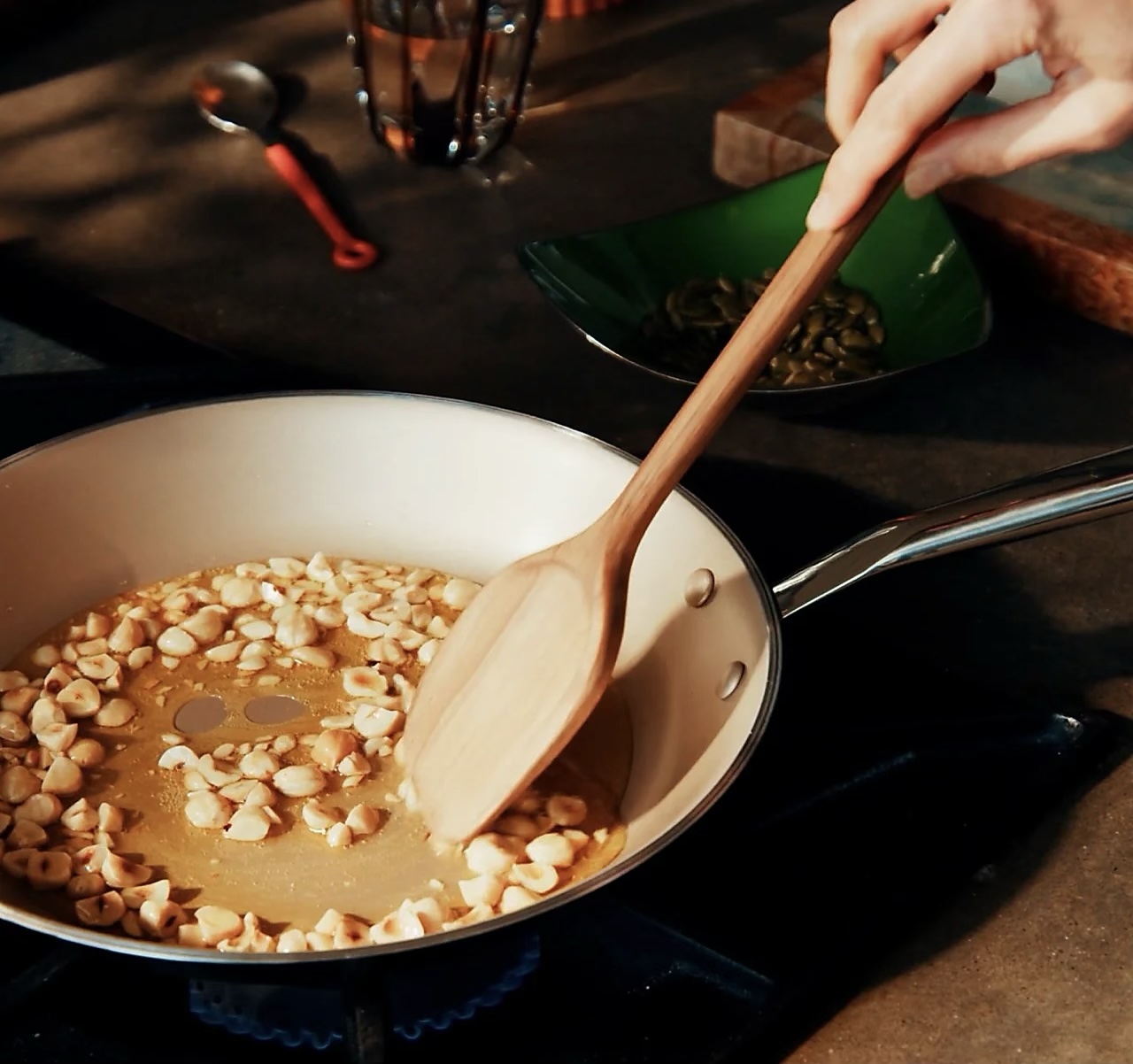
However, for them to carry on with this legacy, they must be cared for properly. Proper care is crucial because wood is porous and will take on odors from food and harsh chemicals (which is why wooden spoons shouldn't be treated like your average silverware).
In keeping with the simplicity of these tools, the care they need is also simple—pretty straightforward. Simply refrain from soaking them in water or putting them in the dishwasher, and keep up with the occasional oiling. Easy enough, right?
No soaking because, as mentioned above, wood is porous and will soak up water, leading to warping, swelling and cracking. You always want to wash any wooden utensil (including any utensils with wooden handles), by hand. It's best to wash them shortly after use with hot water and mild dish soap.
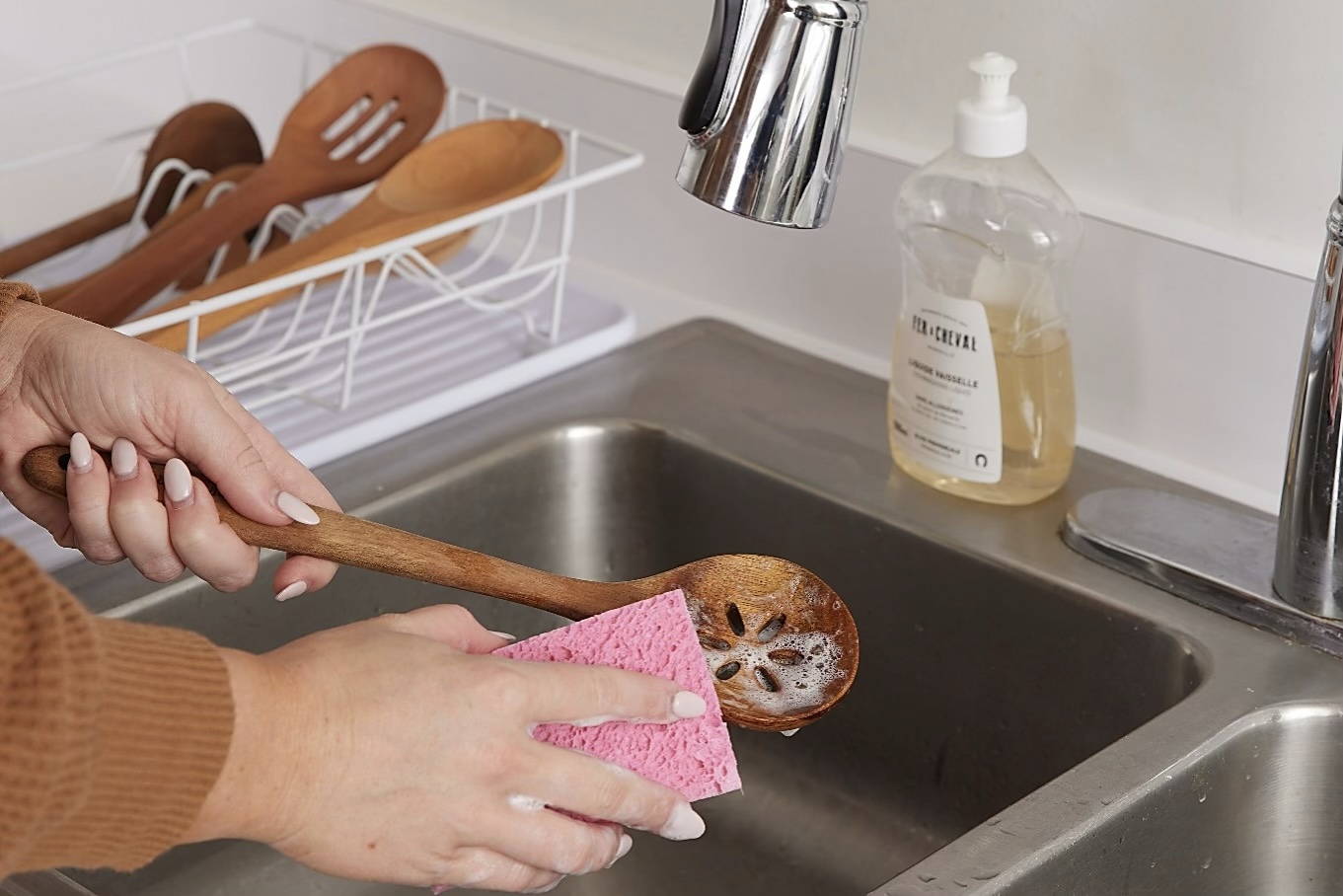
Some professional chefs recommend using lemon with some baking soda, which doesn’t just clean well, but also effectively removes odors that your wooden utensil may have absorbed. Scrub the surface with the cut side of a halved lemon or with a baking soda and water paste, or simply sprinkle baking soda the tool, generously squeeze lemon juice atop the soda, and let the spoon marinate for a minute. Then wash it well with soapy water, and let it fully air dry.
Besides cleaning wooden tools properly, you want to regularly keep them oiled. Lightly rub them with mineral, walnut, tung, or linseed oil. Make sure the oil is fully absorbed before you use the spoons. Once a month is a good plan.
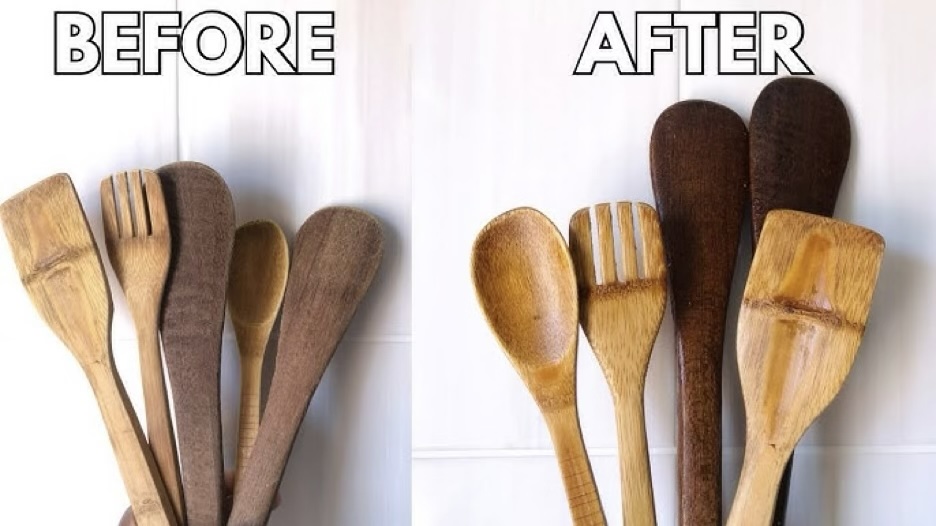
Lastly, on never putting them in the dishwasher: Besides swelling or cracking them, this appliance's high heat will warp wooden utensils and degrade their finish. If they accidentally end up in the dishwasher, oil them immediately after to restore them.
You’ve likely noticed the variety of woods used for kitchen utensils. The best quality are made from hardwoods (beech, cherry, maple, olive, or walnut). This is why, if cared for properly, they can last for so long.
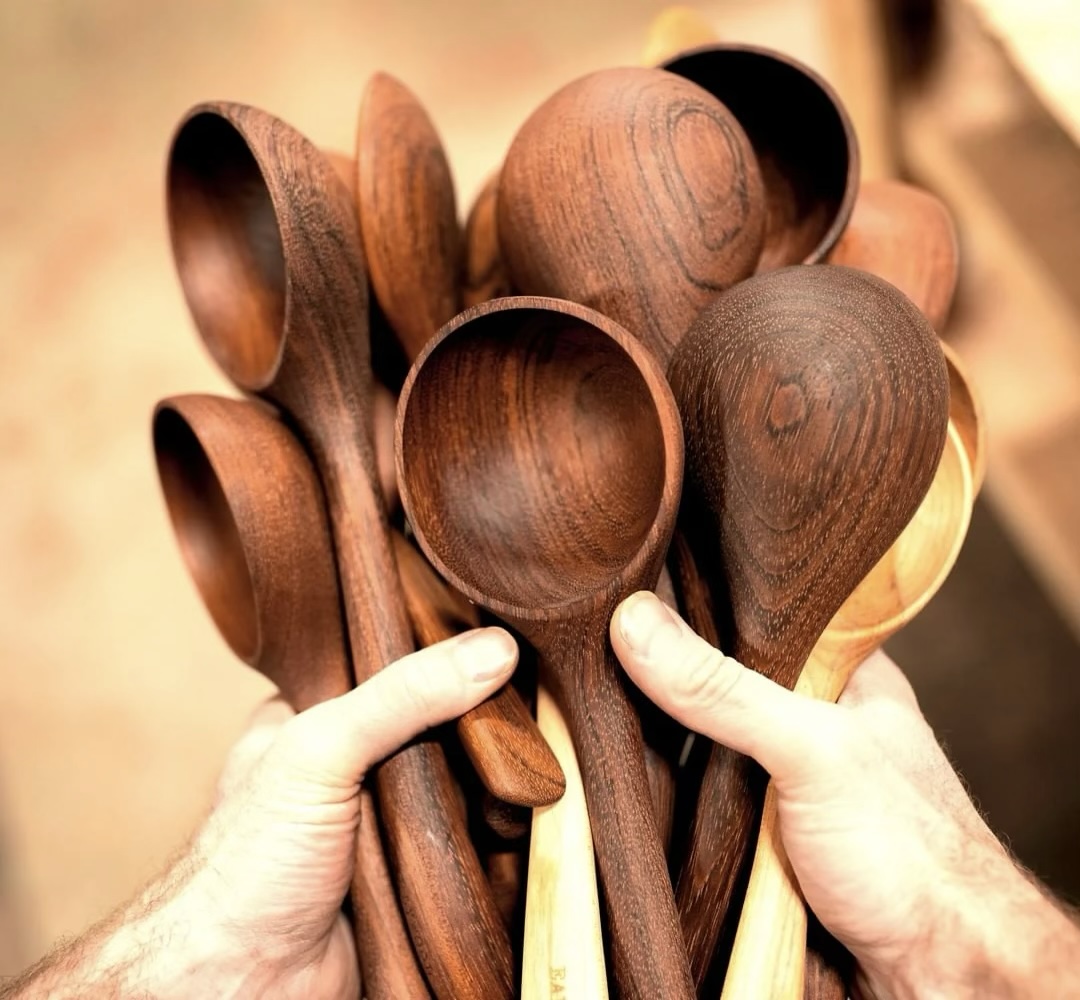
I’ll close with a caution from researcher, Lynn: if you have any split wooden utensils, be sure to discard them. Splits are perfect homes for food bits and bacteria. Better safe than sorry, no matter how old the tool or how much sentiment it carries.
 Alice Osborne
Alice Osborne
Weekly Newsletter Contributor since 2006
Email the author! alice@dvo.com
